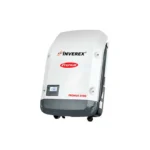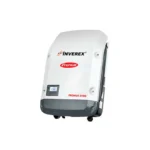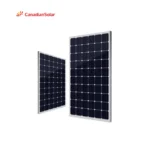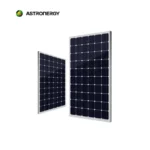Lithium-ion (Li-ion) batteries have become the go-to energy storage solution for a wide range of applications, from smartphones and laptops to electric vehicles and renewable energy systems. Known for their high energy density, long lifespan, and fast charging capabilities, lithium-ion batteries are at the forefront of modern battery technology. Their lightweight and versatile design makes them ideal for both portable electronics and large-scale energy storage.
Key Features:
- High Energy Density: Lithium-ion batteries offer one of the highest energy densities of any battery technology, allowing them to store more energy in a smaller and lighter package. This makes them ideal for applications where space and weight are critical, such as in portable electronics and electric vehicles.
- Long Lifespan: Li-ion batteries are designed to last for many charge and discharge cycles, often exceeding the lifespan of other battery types. This longevity translates into lower replacement costs and better overall value for users.
- Fast Charging: Lithium-ion batteries can be charged quickly without compromising their lifespan, making them ideal for applications where downtime needs to be minimized. This is particularly beneficial for electric vehicles and mobile devices that require frequent recharging.
- Low Self-Discharge: Li-ion batteries have a low self-discharge rate, meaning they retain their charge for longer periods when not in use. This makes them more efficient and reliable, especially in devices that may go unused for extended periods.
- Versatility: Lithium-ion batteries come in various shapes and sizes, making them suitable for a wide range of applications. Whether you need a small battery for a smartphone or a large battery for grid energy storage, lithium-ion technology can meet the demand.
- Lightweight: Compared to other rechargeable batteries like lead-acid, lithium-ion batteries are significantly lighter, making them the preferred choice for portable devices and electric vehicles where weight reduction is crucial.
Applications:
Lithium-ion batteries are used in a broad array of industries and applications, including:
- Portable Electronics: Lithium-ion batteries power most of today’s portable electronics, including smartphones, laptops, tablets, and cameras. Their high energy density allows for longer usage times between charges, making them essential for modern gadgets.
- Electric Vehicles (EVs): Lithium-ion batteries are the backbone of the electric vehicle industry. Their ability to store large amounts of energy while remaining lightweight makes them ideal for powering EVs, providing the necessary range and performance for modern transportation.
- Renewable Energy Storage: In solar and wind energy systems, lithium-ion batteries are used to store excess energy generated during peak production times for use during periods of low production. This makes them essential for ensuring a consistent and reliable energy supply.
- Power Tools: Cordless power tools rely on lithium-ion batteries for their portability and power. The fast charging and high energy output of these batteries make them perfect for demanding applications in construction and home improvement.
- Medical Devices: Lithium-ion batteries are used in a variety of medical devices, from portable oxygen concentrators to defibrillators, where reliability and long-lasting power are critical.
- Aerospace and Defense: The lightweight and high-energy characteristics of lithium-ion batteries make them ideal for aerospace and defense applications, where both weight and performance are critical.
Comparison with Other Battery Technologies:
- Versus Lead-Acid Batteries: Lithium-ion batteries offer a much higher energy density, longer lifespan, and faster charging capabilities compared to lead-acid batteries. While lead-acid batteries are more affordable, lithium-ion batteries provide better overall performance and are more suitable for applications where weight and efficiency are key factors.
- Versus Nickel-Cadmium (NiCd) Batteries: Lithium-ion batteries do not suffer from the “memory effect” that plagues NiCd batteries, allowing them to be charged and discharged without losing capacity. They also have a higher energy density and are more environmentally friendly, as they do not contain toxic cadmium.
- Versus Nickel-Metal Hydride (NiMH) Batteries: While NiMH batteries are safer and more environmentally friendly than NiCd, lithium-ion batteries still outperform them in terms of energy density, lifespan, and charging speed. Lithium-ion is preferred for most modern applications where size and weight are concerns.
Environmental Considerations:
Lithium-ion batteries have a lower environmental impact compared to older battery technologies like lead-acid and NiCd, as they do not contain toxic heavy metals. However, the extraction of lithium and other materials used in these batteries, such as cobalt, can have significant environmental and social impacts. Efforts are being made to develop more sustainable mining practices, and the recycling of lithium-ion batteries is becoming increasingly important. Advances in battery recycling technology are helping to reduce the environmental footprint of lithium-ion batteries by recovering valuable materials and reducing waste.







































Reviews
There are no reviews yet.